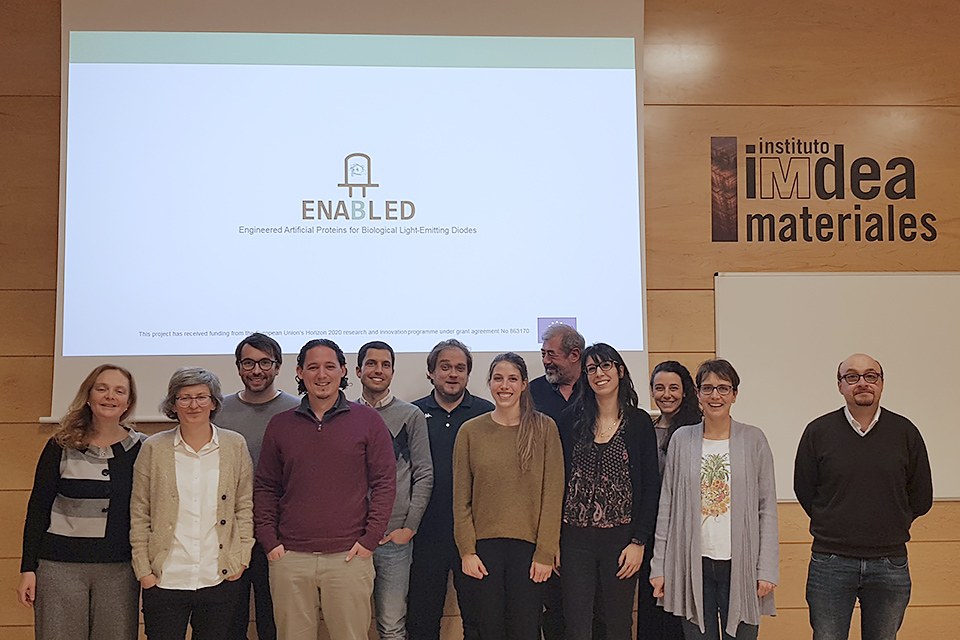ENABLED – A New Funded Research Program to Design Fluorescent Proteins for White LEDs
A joint research project between Spain, Italy and Austria will work to replace inorganic phosphor filters in LEDs by those nature uses deed down the sea. The ENABLED project, coordinated by the Spanish research center IMDEA Materials Institute, has a budget of € 2.7 million euros, will run for the next 3 years and is funded by the European Commission under the Future and Emerging Technologies programme.
Background:
LED lamps consist of a blue-emitting chip and an optical filter made of inorganic phosphors, rare earth minerals that transforms blue light into the white light we all use in our homes. This filter does not efficiently convert blue light, causing serious implications on visual acuity in children and sleep disorder in adults. Moreover, inorganic phosphors are quite scarce and localized in a few countries. Indeed, they are listed as one of the 27 critical raw materials by the European Union. It is expected that global reserves of inorganic phosphor will run out in 10-15 years if global demand for LEDs rises as expected, while the recycling process is quite inefficient.
Research:
Three out of four sea creatures produce high power light using protein filters for hunting, communication or self-protection purposes. The main problem for the practical use of these proteins in LED lightning is to preserve them outside their aquatic environment.
A Spanish research group led by Rubén Costa at IMDEA Materials Institute has managed to stabilize these fluorescent proteins in a plastic matrix without compromising their excellent brightness. This new technology is called Bio-LED and has already achieved up to 6 months of stability with a high efficiency using new polymer matrices and additives, while understanding deactivation mechanism.
In this context, the ENABLED project raises, however, a new challenge: can we genetically design these fluorescent proteins to meet our lightning needs? A research team composed of computational experts, biochemists, chemists, synthetic biologists and optoelectronic professionals promises to produce genetically modified proteins produced by bacteria, such as E. Coli, in order to develop new filters that could level up the performance of the current Bio-LEDs. This multidisciplinary project is one of the leading examples in which synthetic biology serves to the artificial lighting technology.
The project has received funding from the European Union's Horizon 2020 research and innovation programme under grant agreement No 863170.
For additional information, please visit materials.imdea.org/
Rubén D. Cost, the LED professional Scientific Award 2016 winner presented the idea in an very early stage at the LpS in Bregenz.
About IMDEA Materials:
The IMDEA Materials Institute is part of the Madrid Institute for Advanced Studies (IMDEA) network, a new institutional framework created to foster social and economic sustainable growth in the region of Madrid by promoting the generation of scientific knowledge and technological innovation in a number of strategic areas (water, food, energy, materials, nanoscience, networks and software).
We are a non-profit organisation (foundation) with the Mission of doing research of excellence in material science, contributing to tackle the challenges of society and fostering the sustainable development of the region of Madrid.
Our Vision for the future is that IMDEA Materials becomes a leading research institute, internationally recognized for its excellence in material science and its contributions to the transformation of society.

